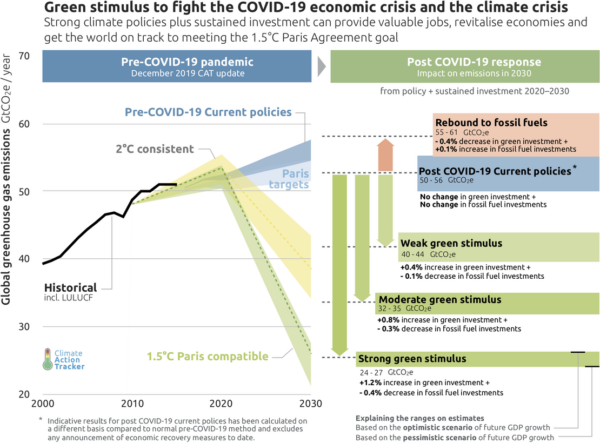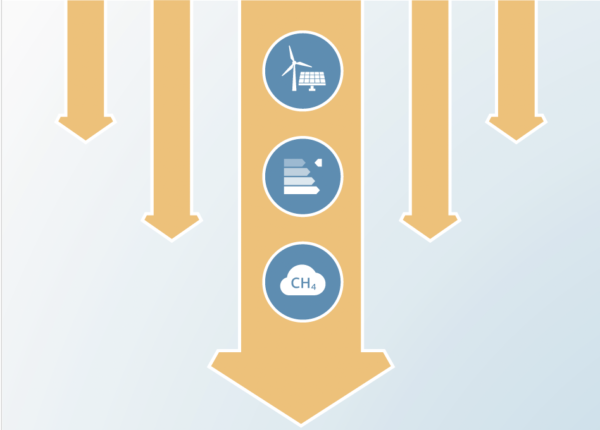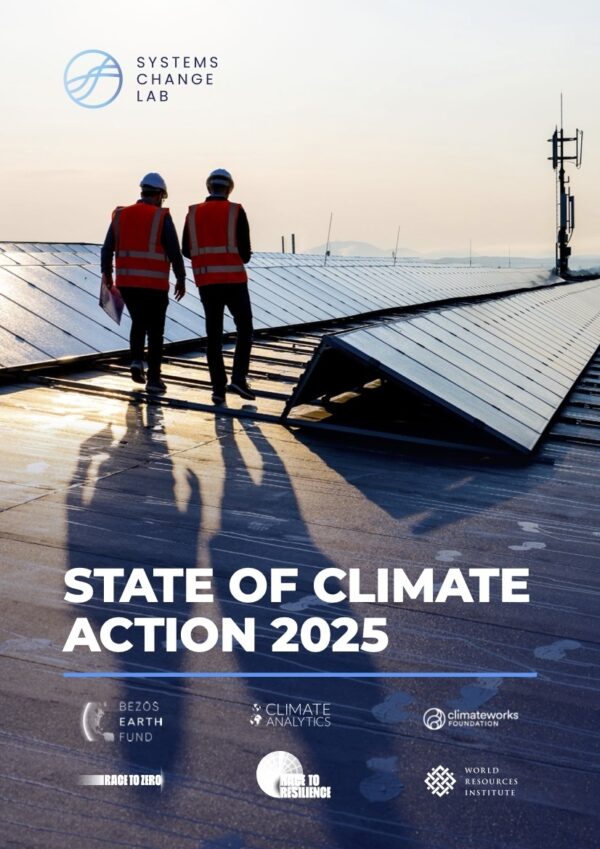A government roadmap for addressing the climate and post COVID-19 economic crises
Authors
Climate Analytics, New Climate Institute, Bill Hare, Anne Zimmer, Gaurav Ganti, Andreas Geiges, Claire Stockwell, Deborah Ramalope

The COVID-19 pandemic presents the world with an unprecedented policy challenge: not only will it have a severe impact on the global economy likely to exceed that of both the 2008-09 Global Financial Crisis and the Great Depression, it will take place against the backdrop of the ongoing climate crisis.
In acknowledging the magnitude of this unprecedented challenge, the priority for governments must first be the immediate emergency response focussing on saving lives, supporting health infrastructure, food availability, and the many other urgent social and economic support measures such as short-term job allowances, direct cash handouts to citizens, or targeted liquidity support to SMEs. But solving the COVID-19 crisis cannot come at the expense of solving the longer-term issue facing humanity: the climate crisis.
The question of how the economic recovery is designed remains crucial in shaping the long-term pathways for emissions and determining whether the Paris Agreement’s 1.5˚C temperature limit can be achieved. Our analysis points to strong economic and climate change advantages if governments were to adopt green stimulus packages in response to the COVID-19 pandemic.
Conversely, if governments don’t roll out low carbon development strategies and policies – or roll back existing climate policies – in response to the coming economic crisis, emissions could rebound and even overshoot previously projected levels by 2030, despite lower economic growth in the period to 2030. This report shows that the future is for governments to choose. COVID-19 recovery presents both opportunities and threats to enhancing our resilience to climate change.












